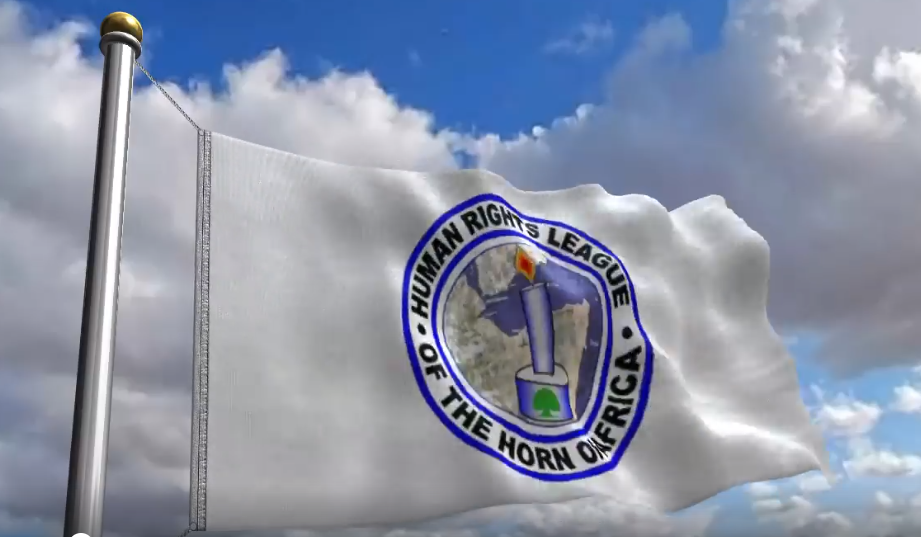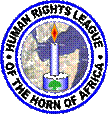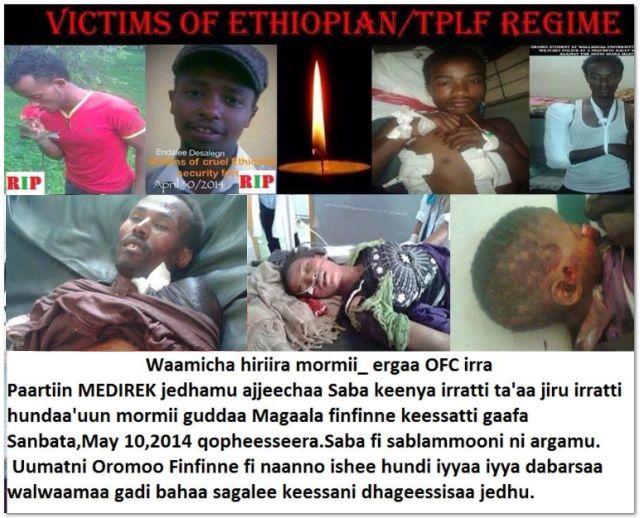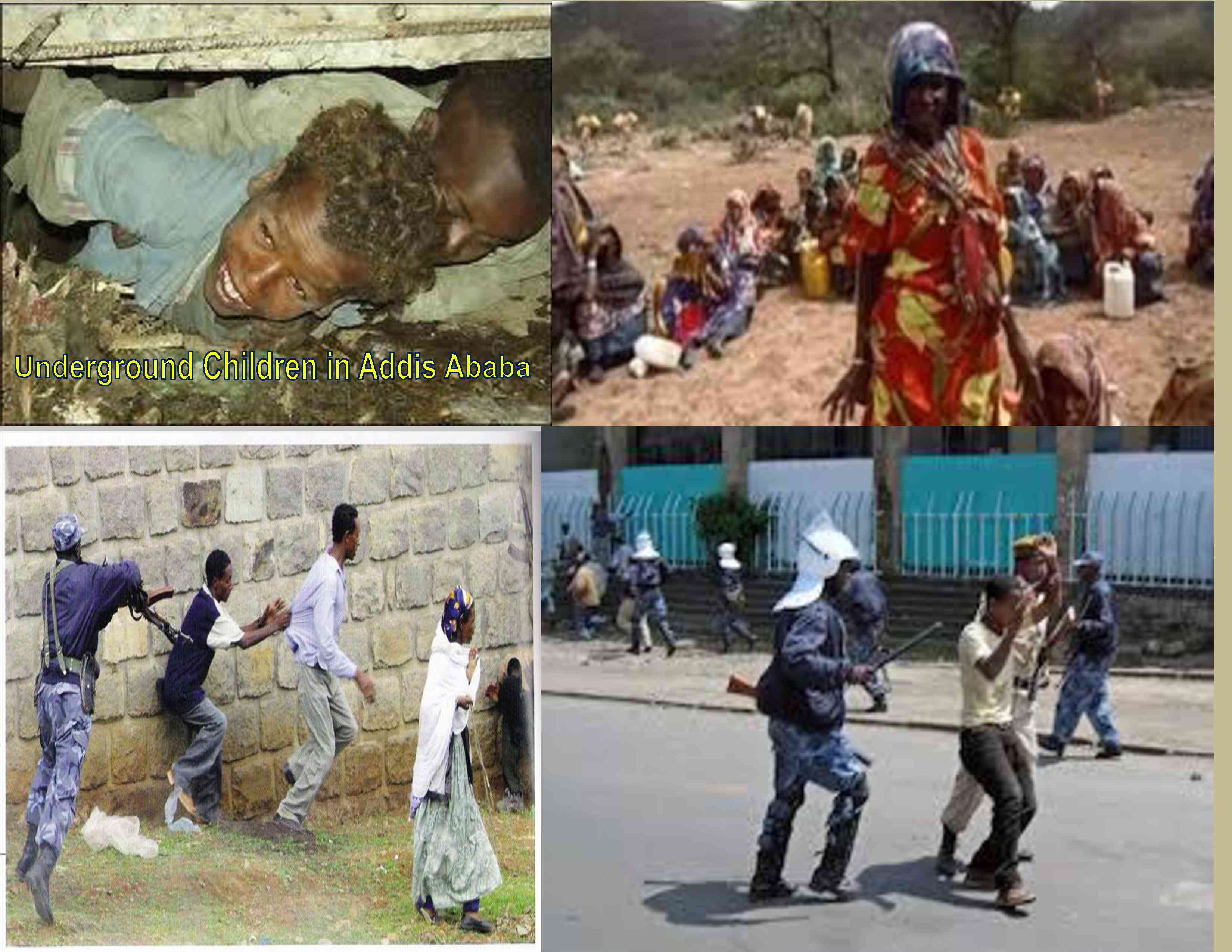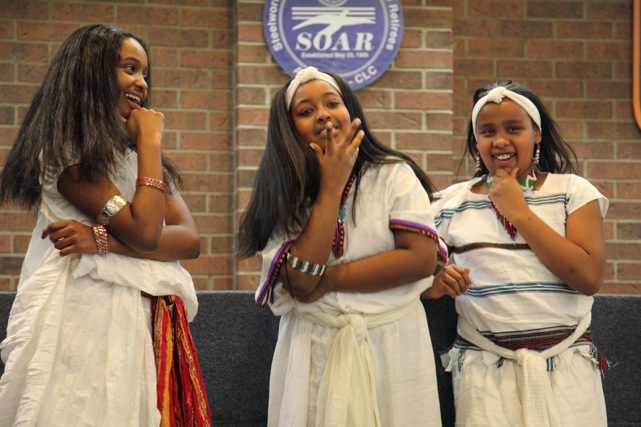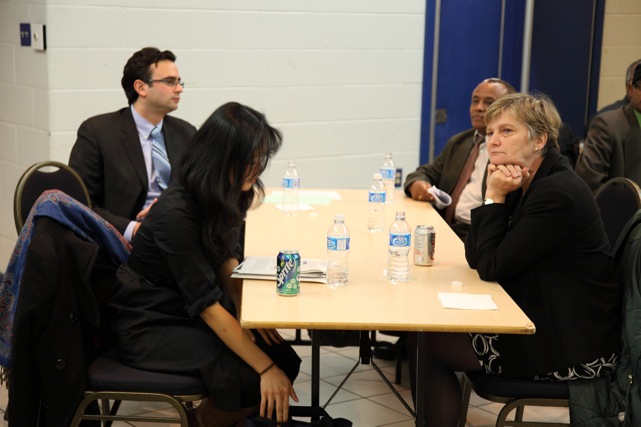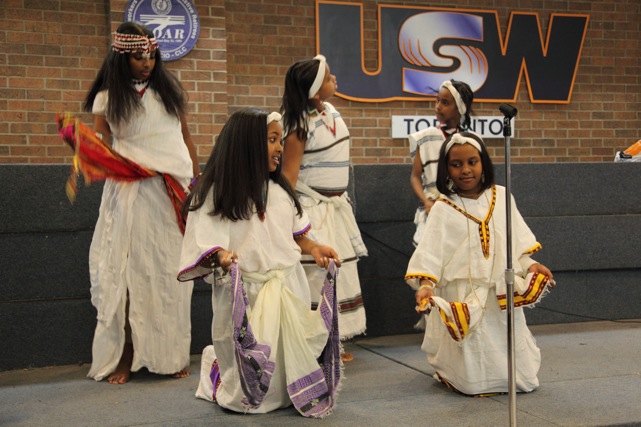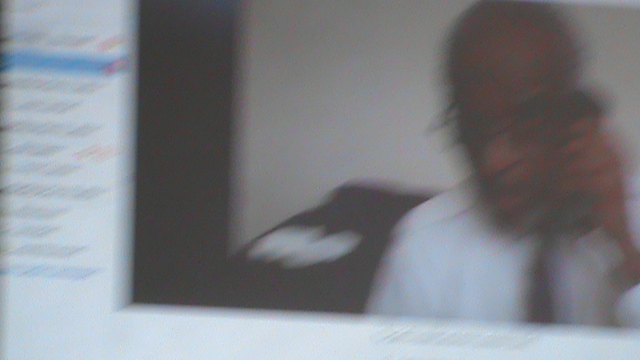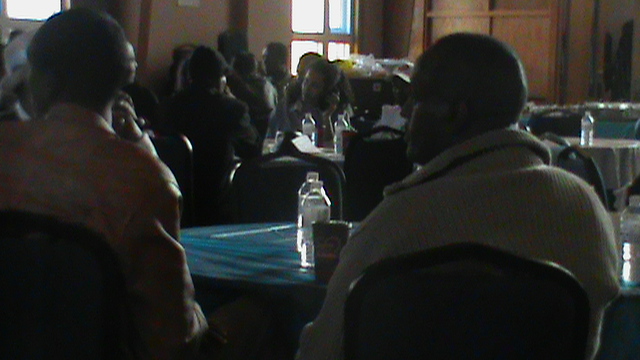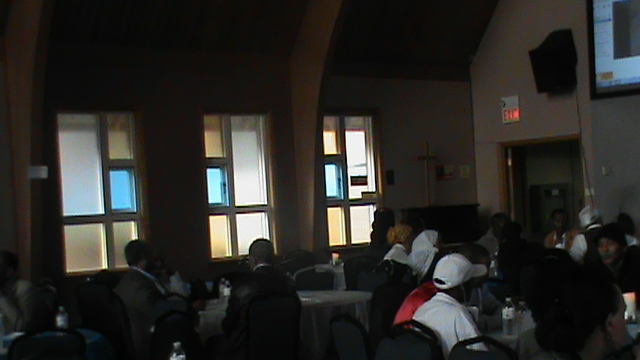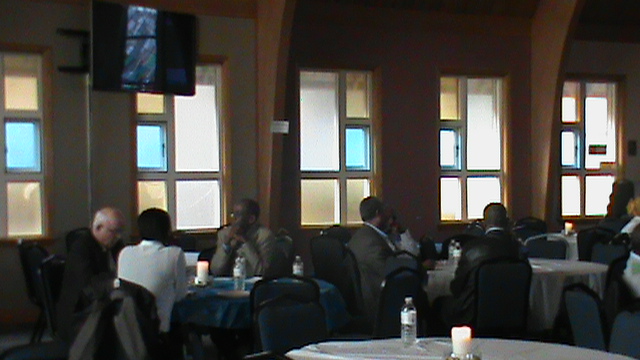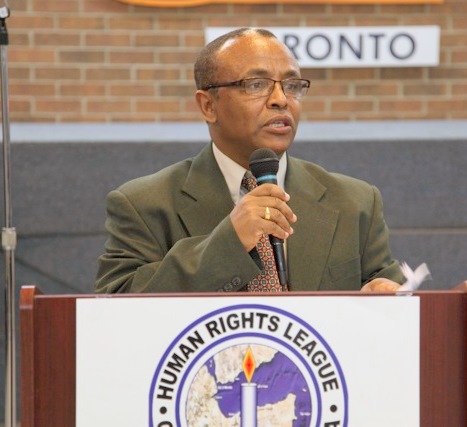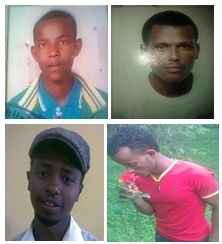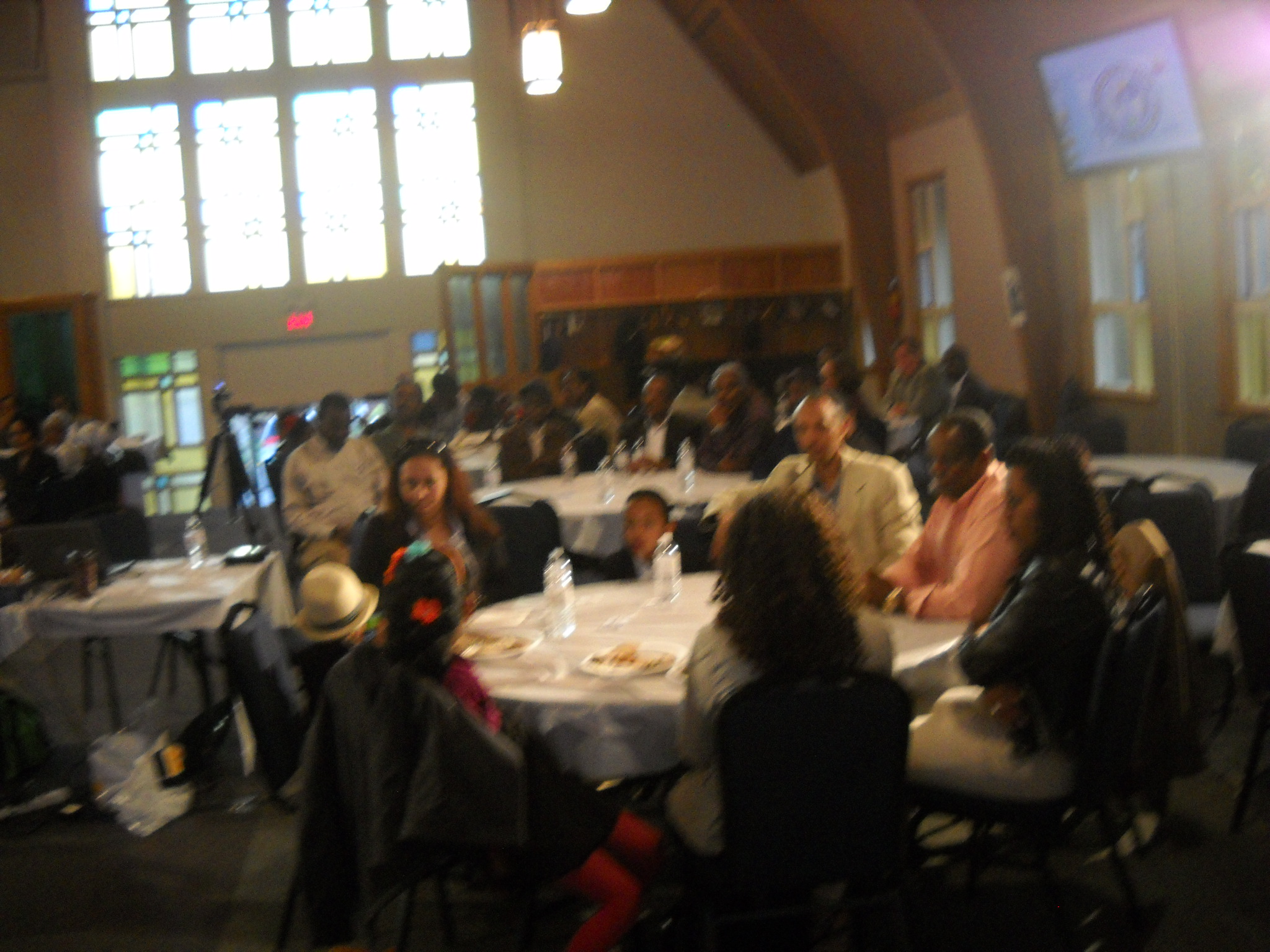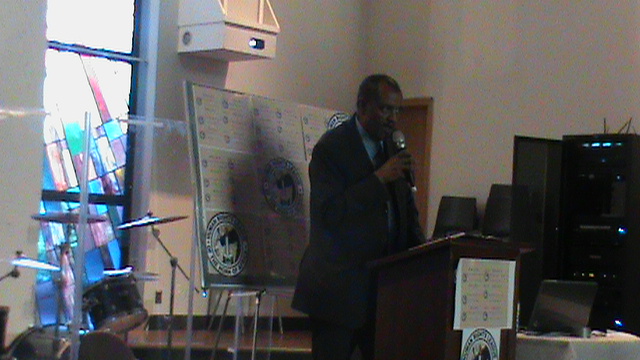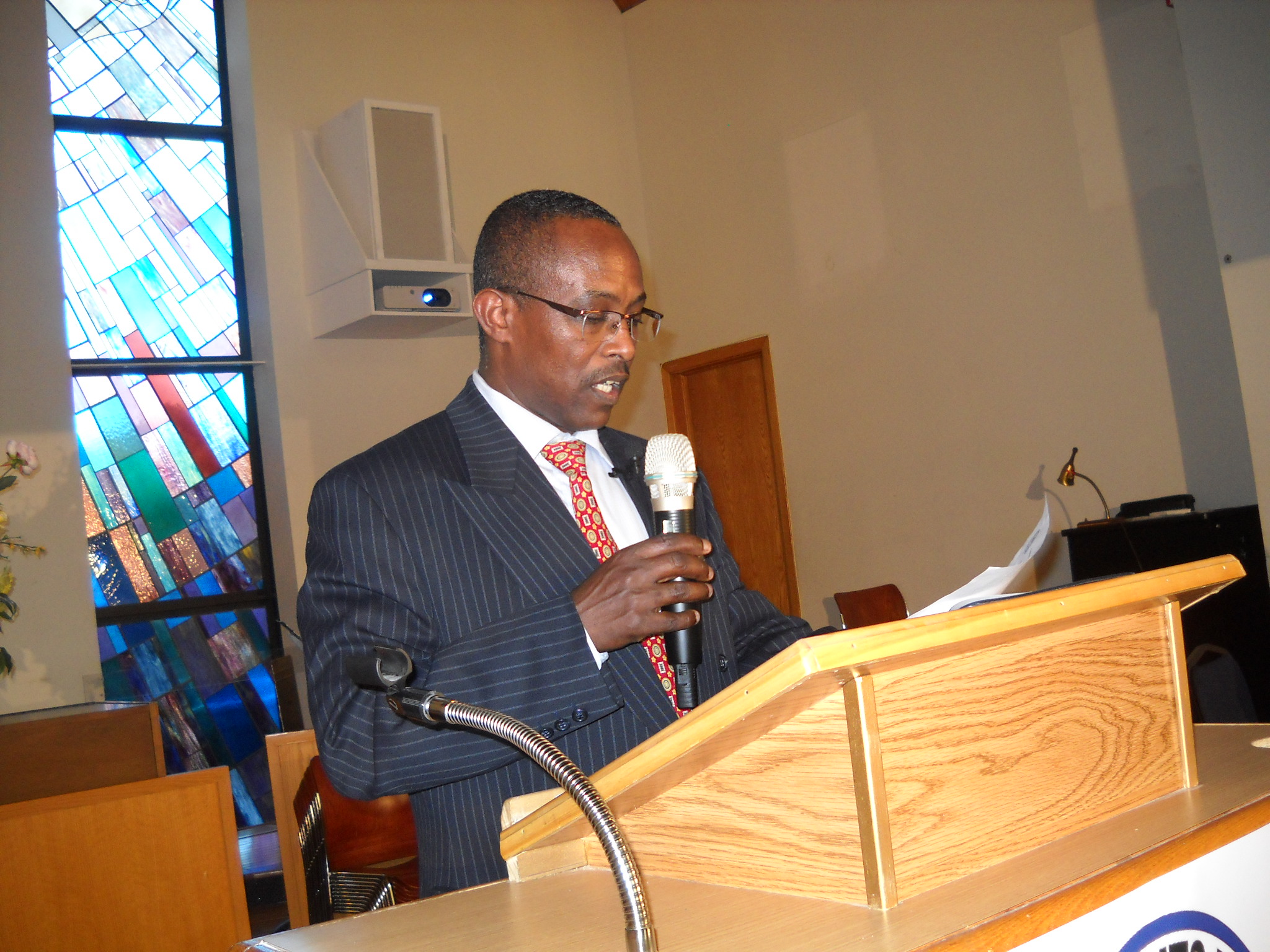Opening Speech
HRLHA Board Chairman
Pastor Shamsadin Abdo Boru, the chairman of the board of the Human Rights League Horn of Africa (HRLHA), could not attend this event. Recently he moved to another city to join his family members. To receive direction and blessing, before I prepared this opening speech I consulted Pastor Boru. I have incorporated his view in my speech.
Our Oromo elders, friends of HRLHA, and all of our guests, welcome to this fundraising event. We are delighted to have you here in this great fundraising event for the HRLHA. I have a friend who lives in Geneva who came to attend this event. Many of you have traveled long distances and left behind your busy schedules to attend your efforts remind us how important human right work is for us.
What are human rights?
Speaking on this fundraising event, it is very important to remind each other where the idea of human rights began, how long we have moved on human rights paths, what obstacles have we faced and how far we have to go to achieve our desired goals.
Human rights are rights inherent to all human beings. No matter to our nationality, place of residence, sex, national or ethnic origin, colour of our skin, religion, language, social and economic conditions or any other status; human rights are the same. All human beings are equally entitled to human rights without any discrimination. All the concepts of human rights are derived from the human dignity and which all human beings inherit for being human. Hence, it is something that we all equally treasure. However, there are states, individuals and institutions that violate our rights. There are many people who do not understand their rights and do not stand for their rights. To defend our rights, first we need to know what it constitutes. To promote the rights of others we need to personally value and cherish it. If not as the saying goes “we talk the talk, but we fall to walk the walk”.
Throughout human history, people acquired rights and responsibilities through their membership in a group – a family, nation, religion, class, community, or state. Most societies have had traditions similar to the “golden rule” of “Do unto others as you would have them do unto you.” The Hindu Vedas, the Babylonian Code of Hammurabi, the Bible, the Quran (Koran), and the Analects of Confucius are examples. In fact, all societies, whether in their oral or written traditions, have had systems of propriety and justice as well as ways of tending to the health and welfare of their members. In the case of the Oromos, there are several concepts that are directly linked to human rights: saafu, seera waaqa, mirga and haaqa. These concepts imply social order, balance in social relationships, rights or entitlements. The Oromo concept of nagaa (peace) is intertwined with fayya (health). It entails personal peace, a community’s’ peace and the peace of the natural environment. From the Oromo perspective, one can have peace only if the neighbourhood has peace. For example, my grandmother Ba’isee Biqilee in her fireplace teachings discuss the Oromo norms of conduct as she says “Namaati hindarbiinm, namniis siiti hindarbiin” which can be translated as “never transgress against others and never let others to transgress against you”. Regard for human rights is critical to bring about peace and social transformation.
Genesis of the 20th Century Human Rights Documents
The struggle for human rights began before human beings started to read and write. When it comes to documentation, it was Cyrus the Great, of Persia, who was first to write about it . This is registered as the Cyrus cylinder. The Cyrus idea of human rights spread throughout the world and became a guiding principle of human rights.
Later on documents asserting individual rights, such as the Magna Carta (1215), the English Bill of Rights (1689), the French Declaration on the Rights of Man and Citizen (1789), and the US Constitution and Bill of Rights (1791) are the written precursors to many of today’s human rights documents. However, when many of these documents were produced and translated into policy, they excluded women, people of colour, and members of certain social, religious, economic, and political groups. Nevertheless, oppressed people throughout the world have drawn on the principles in these documents and used them to support revolutions that assert the right of people to self-determination. The concept of self-determination includes both individual and collective rights. One of the most important documents that have shaped human relations is the Universal Declaration of Human Rights (UDHR).
The Formation of UDHR
The formation of UDHR is linked with the birth of the United Nations (UN). In its turn, the formation of the UN resulted from the bloody war instigated by Nazi racist ideas. The extermination by Nazi Germany of over six million Jews, Sinti and Romani (gypsies), and persons with disabilities horrified the world. Hence, the idea of human rights emerged stronger after World War II. Indeed, after the war, many states committed themselves to establishing the UN, with the primary goal of bolstering international peace and preventing war. People wanted to ensure that never again would anyone be unjustly denied life, freedom, food, shelter, and national identity. Sixty-four years ago in 1948, soon after Second World War ended in the formation of UN, the founding states set the principles that should govern or guide all human relations for all countries. They named this guiding principle as the Universal Declaration of Human Rights (UDHR) also known as the human rights principle. The UDHR of 1948 has many articles and cover several spheres and all of them are essential for human survival and peaceful coexistence.
Article 1, All human beings are born free and equal in dignity and rights. This article was instrumental in ending racial segregation.
Article 5.
No one shall be subjected to torture or to cruel, inhuman or degrading treatment or punishment.
The civil rights movement activists made use of these articles to challenge long-standing racial segregation. Many of us here in North America and Europe have benefited from the efforts and sacrifices that the civil rights movement leaders have made. I know many of you have experienced torture in Ethiopia, and if you have not personally experienced it, one of your family members has experienced it or you know someone who has. Personally, I know someone among our guests whose daily topic of prayer is finding the whereabouts of a loved one.
Let me offer a specific example. When I was collecting data for my PhD thesis, one of my informants was among those who have conscribed into the Ethiopian government militia. When he was conscribed he was about 17 years old. With little military training, he was sent to the warfront. The militias were paid 20 Birr/month, which is equivalent to one US dollar. At the war front, they were sent into risky and dangerous military operations. For this reason, the militia were nicknamed as “Abraji” in Amaharic- which means coolers implying they were used to cool down the gunfire of the enemy that the military government has framed (the TPLF, EPLF and OLF forces). As a result, majority of the militias died in the warfront. Although he was wounded several times, my informant survived the war and witnessed the collapse of the government that conscribed him to the militia. He hoped that the collapse of the regime would bring him relief and peace. It turned out to be unfortunately the beginning of a new extreme condition.
When the EPLF took control of Asmara – the capital of Eritrea, he was stationed in a military camp controlled by the Ethiopian government around the Red Sea. The military stationed in that area and others decided to go to Sudan as a refugee. On their way to Sudan, before they reached the town of Barentu in Western Eritrea they smelled something like a barbeque from a distance. They were not sure what it was –but followed the footsteps of others who were running to save their lives. Soon they found out that the EPLF army surrounded them. The EPLF army were bitterly angry at the Ethiopian military and they were ready to take action that was cruel as the actions of the military government of Ethiopia against them. The EPLF army had no clue how these militias ended up at the warfront. The barbeque smell turned out to be human body – the militia and the military that arrived a few hours before the arrival of my informant. My informant and his group was forced to walk on the dead bodies and allowed to cross to Sudan. After a week’s of journey when, they arrived in Sudan there was no food or water. The conditions were totally unbearable. A few days after they arrived, the Sudan government allowed NGOs to deliver food and water.
The foods that the NGOs delivered were grains not ready to eat– it was barley and wheat. There were no means of cooking or grinding these grains. The refugees ate the un-grinded and uncooked barley and wheat, which led to diarrhea and vomiting. This means they either ingested pathogenic micro-organisms or had allergic reaction to the foods they ate. Many people died. Until the Red Cross arrived with prepared foods and provided them the tools to grind the grain and cook foods, those who survived ate the undigested wheat and barley from their own feces.
On behalf of those refugees, the Red Cross negotiated with the TPLF government and promised them to provide money to help them settle and took them to Finfinee. The TPLF government treated those refugees as the enemy. The funds that the Red Cross have handed over to the TPLF government were never delivered to those militias and refugees – who were supposed to be settled in their village and towns.
When these refugees returned back to their villages and towns, they found that their families and communities were totally impoverished. The former militia had nowhere to go- no legal system to defend them. As helpless and hopeless as they were, many engaged in vandalism and robbery. To relieve their stresses, many of them engaged with commercial sex workers and drink alcohol. A few of those who survived the war, the hardship life in refugee camps returned back to their villages and towns they were became street beggars and infected with HIV and massively perished. The TPLF accused the few who survived, of sympathizing with the OLF and ended up in jail.
During the war, the Eritrean and Tigray people suffered from famine instigated by instability and war, compounded with the Ethiopian government’s deliberate actions and inactions. There are cases where the military government denied the delivery of foods to starving people. These people truly experienced the cruelty of the Ethiopian government.
I offer these stories not to blame the Dergi, TPLF, EPLF, OLF and other groups. My intention is to show how our fate is interconnected. If there were regard for human rights we would have averted the suffering of people in Eritrea, Tigray, Oromia and the other regions. If society is informed about human rights and committed to its principles, eventually influence government to frame policies in human rights framework and challenge policies that is contrary to the human right principles.
Let us take a close look at the experience of my informant. In Ethiopia, if the government and the people were committed to human rights no one would go to war. The EPLF, TPLF, OLF and others would not choose armed struggle. Instead they would choose to settle their consecutive political questions and other disputes in round table discussions. If the Ethiopian government were committed to human rights it would not be involved in the killing of people. Not only that, if human rights principles were respected, the Ethiopian government could not easily conscribe militias to the war front and they would have difficulty recruiting the army. The family members of the children or the adults who were conscribed to the militia could have said no to the conscription. If human rights has been respected the Ethiopian government would have had difficulty financing and prosecuting the war. The conscribed militia’s rights were not respected; they were forced to kill the groups that the Ethiopian government said were the enemy. The opposition groups were angry about what the government does and acted against the Ethiopian government military in a cruel manner. If regard for human rights were respected war would have been prevented and the suffering people eased. This means regard for human rights are an essential social tool for peace and development. Not only that regard for human rights in one country benefits people both at the local and regional level. This makes regard for human rights a public good.
Now let me take you back to the UDHR and specifically look at some of the articles.
Article 20.
(1) Everyone has the right to freedom of peaceful assembly and association.
(2) No one may be compelled to belong to an association.
As you know many Oromo organizations that intend to bring change to the lives’ of the Oromo people are banned and members are imprisoned, tortured and killed. This is true of the Oromo relief associations such the ORA, the self-help associations Metcha and Tulema and also political organizations such as the OLF.
Article 25
Everyone has the right to a standard of living adequate for the health and well-being of himself and of his family, including food, clothing, housing and medical care and necessary social services, and the right to security in the event of unemployment, sickness, disability, widowhood, old age or other lack of livelihood in circumstances beyond his control.
Although Ethiopia is one of the founding states of the UN and a signatory of UDHR, most of the people in Ethiopia and Oromia live in poverty and they have no access to basic necessities.
Article 26
Education should be compulsory and free for children.
In Ethiopia this right is violated. According to the UNICEF in Ethiopia only 35 % of people can read and write. The numbers in the neighboring countries Eritrea 65.3 %, Kenya 86.5 % and Sudan 69.3 %
Why do we need take the issue of human rights very seriously and speak about the voiceless people?
I do not know if you ever asked yourself this question. I did ask myself and others. When I was an 11th grade student, I was lectured by an elderly Oromo man – Dabalo Waqee – on this matter. As many of you know, the Oromo concept of right (Mirga) is not separate from the term justice (Haqaa). This elderly man lectured me when I made a comment on his effort to defend the right of a boy. This elderly man was discussing with others that at one point he took his gun to kill in defence of the right of a young boy who was about to lose entitlement (mirga) of killing an antelope. I interrupted the conversation and I said, ”you were about to kill someone for just a piece of meat and a head of dead antelope?” He defended himself as he said, “I was not intending to kill for piece of meat and the head of an antelope but for the rights of the boy.” If it had just been for piece of meat and a head of antelope, I would have given the boy one of my goats”. Then he said, you could give your life, money and property to someone whom you love (family, community, friend and your country), but you never give up your rights for any one. If at one point you gave up one of your rights, you could lose the next one. If you see the rights of others violated and you do not defend them, you are allowing them to come after you rights. Since then, at least in principle I have applied the teachings of this elderly man Dabalo Waqee.
Dabalo Waqee is not unique. A German Lutheran pastor Martin Niemoller also taught us the need to be active defender of the rights of others when he said,
“In Germany they first came for the Communists,
and I didn’t speak up because I wasn’t a Communist.
Then they came for the Jews,
and I didn’t speak up because I wasn’t a Jew.
Then they came for the trade unionists,
and I didn’t speak up because I wasn’t a trade unionist.
Then they came for the Catholics,
and I didn’t speak up because I was a Protestant.
Then they came for me —
and by that time no one was left to speak up.”
Dabalo Waqee lived in Oromia and he is a Waqefaata—Oromo traditional religion, whereas Martin Niemoller was a German Lutheran pastor. Although they were from the same generation, they lived in different continents and culture.
The idea of human rights framed in UDHR and other charters, makes it clear that promoting human rights is advancing the common good. It is good for me as a person– it is good for a group I belong, it is good for you personally and for a group you belong to and everyone else. The principle of human rights defends the weak from the powerful and it is equally defends the powerful from the weak. Defending the poor does not compromise the rights of the rich. By promoting human rights, we are advancing people’s to live up to their potential- less misery or no misery; no illiteracy or less illiteracy. By promoting human rights we are promoting peace, stability and justice, which is desperately needed in the Horn of Africa.
As many of you know, HRL was initially conceived in order to promote human rights in Ethiopia. For this reason the leaders of the organization were imprisoned and tortured. When the leaders were released from prison they came to Canada to settle as immigrants. Here in Canada they have expanded their work to cover the whole Horn of Africa. , In 2011 HRLHA got consultancy status on the UN Human Rights Desk. Widening the scope of coverage and having a special consultancy status provides opportunities and challenges to HRLHA. The opportunities and the challenges that the HRLHA faces are enormous. As the Oromo saying goes, ”yoga mukka murtu heedu dhiphisnaan yokkan heedu balifnaan nibultaa”- if you are a logger, if you make the cutting wide enough you can cut fast but, if you make the cutting too wide and too narrow it takes you longer”. As we have clearly seen from the experience of my informant there cannot be peace, stability and prosperity in Oromia without peace and stability in the neighboring countries. This necessitates widening our scope and including the Horn of Africa and at the same time realise our limitation.
In the Horn of Africa human rights issues are major obstacle to social transformation. As you know, Somalia is a stateless state. It is very difficult to monitor and report what is going on there. We know little about the conditions of refugees. In Eritrea, government officials admit that the Eritrean people did not elect them. This makes the issue very clear. The Republic of South Sudan (RSS) is a young state and the government is facing multiple challenges. On one hand, the RSS government is facing challenges internal inter-ethnic conflicts. On the other, they are facing conflict with Sudan. Monitoring the human rights situation is very critical. It helps a young state to mature faster.
Monitoring human rights conditions in Ethiopia is more complex. Contrary to the Eritrean government, the Ethiopian government claims to represent the people. They claim they won 99 percent of the seats in parliament. The Ethiopian government formed several biased non-governmental organizations. For example, the Ethiopian government formed the Ethiopian Human Rights Commission (EHRC)- which is organized to justify the Ethiopian government policies and whitewash the human rights violations perpetuated by the Ethiopian government.
What does the future hold for people in the Horn of Africa?
The idea of human rights is a legal foundation on which the UN was formed. The idea of human rights is contrary to the idea of domination by one racial-ethnic-religious group over the other. It creates limits and norms regarding the ways individuals and groups interact and can be instrumental in bringing peace, stability and social transformation in the Horn of Africa. The idea of human rights is about the liberty of people and it attracts most of the people in the Horn of Africa.
In Ethiopia, political forces can be categorized into four sections. First, the Ethiopian government led by the TPLF is using divide and rule tactics and is creating interethnic and enter-ethnic as well as religious conflicts. The Ethiopian government is also playing scare tactic and presenting itself to the Western World as if they were the only reliable friend in fighting against terrorism and promoting peace and stability. TPLF represents five million, out of the over 80 million people in Ethiopia. Given that they represent a minority group, they cannot be democratic, bring peace and stability and be a reliable friend in fighting against terrorism at its root. Indeed, the Western world needs to realize that working with a minority group who are charged in genocide and human rights violations is counter-productive in their efforts to fight terrorism. All the people of the Horn of Africa, all political and religious groups need to adopt human rights as the framework through which they need to see the world around them and challenge any action and inaction that are contrary to human right principles and avert conflicts that involve armed confrontation. The Western world needs to understand the nature of the TPLF and free them-selves from the fear that the TPLF has created and work with the people and promotes peace and human rights.
Second, many Ethiopian political organizations promote the Ethiopian unity at all costs. When it comes to human rights they talk about individuals rights but not collective rights. It seems that they are more concerned about the territorial integrity of Ethiopia and less about individual’s rights and not at all about the collective rights of people. Although they claim commitment to human rights principles they want to impose their identity upon others. Human rights are intertwined and inseparable. Individuals and political parties that promote individuals rights but choose to ignore collective rights are offering a recipe for another round of conflicts.
Third, several political organizations promote the formation of independent states and they emphasise more collective rights and brush aside individuals’ rights. The third groups are not much different from the second and we need to encourage them to re-evaluate their political programs from the human rights framework.
Fourth, there are several political parties that are promoting both individual and collective rights. They have left their political programs open for the people themselves to define the nature of political relations between the people in the Horn of Africa. We need to encourage those parties to work together and engage others in dialogue.
How do we conceptualize this fundraising party?
I want you to see your small and big donation to HRLHA as an investment. There are two types of investments. One of the types benefits a few individuals and groups. Such investment is widespread. Whether or not they are big or a small investment most of us are involved in them. The second investment is made for the public good. Resisting racial segregation in the USA, when Martin Luther King sacrificed his life, he invested in the common good of human beings. When Nelson Mandela spent twenty eight years in the prison because of the Apartheid South Africa, he invested in the common good of the people in South Africa and beyond. In the same way, your contribution to HRLHA is an investment in the common good of people in the Horn of Africa.
I am aware that many of you send some money to loved ones back home. It is an important duty. When we are sending money to our family members, we are contributing our part to addressing their needs. When we give our time and money in advancing human rights we are promoting a common good: it is good for my family, your family and anyone whom you know or would never know. Advancing human rights to the wider public benefits more people and makes it more important. Just as the civil right movements leaders sacrificed their lives and gave us liberty that we cherish today, if we give our time and money in promoting human rights we are investing in our children, grandchildren.
Advocacy human rights are a time consuming job. When you promote human rights, you collect information and let others know. Having first hand information about the suffering of people is painful. I know this when I collected data for my PhD thesis. As you hear the pain and the suffering of others, you start to feel their pain.
The executive officers of HRLHA are facing these challenges. They are promoting human rights, investing their energy and time, to bring peace and stability to the Horn of Africa. Using this opportunity I would like to congratulate them.
Thank you
Begna
——————————————————————————————————————————————-
The Human Rights League of the Horn of Africa (HRLHA) celebrated the fifth anniversary of Its re-launch  from Diaspora on the 5th of May, 2012 in Toronto, Canada. It was a very colourful celebration accompanied by fund-raising and entertainment events. It attracted people of diverse backgrounds who had the common belief that fundamental human rights should be respected, and all human beings should be treated equally. Among the various presentations and speeches were HRLHA’s Executive Director, Mr. Garoma B. Wakessa’s activity report. Below is its full tex.
from Diaspora on the 5th of May, 2012 in Toronto, Canada. It was a very colourful celebration accompanied by fund-raising and entertainment events. It attracted people of diverse backgrounds who had the common belief that fundamental human rights should be respected, and all human beings should be treated equally. Among the various presentations and speeches were HRLHA’s Executive Director, Mr. Garoma B. Wakessa’s activity report. Below is its full tex.
Good evening and welcome to HRLHA’s “Night to fight for human rights” dinner and entertainment event. It is, as always, an honor to be a part of this event and especially this year, as we celebrate HRLHA’s fifth anniversary.
I have a number of people to thank tonight on behalf of myself and Human Rights League of the Horn of Africa.
First, I would like to take this opportunity to thank all who worked on Fundraising committee, and as Volunteers to put this event together,
Thanks to sisters who offered us a delicious dinner covering all expenses by themselves,
Thanks to HRLHA Board members for the service they are rendering to this organization,
Thanks to Mr. Garbi Nure and his band members for their incredible music service every year we organize fundraising,
I especially would like to take this opportunity to thank one of the HRLHA’s Board Members, Dr. Martha Kuwee Kumsa who went above and beyond to make this organization successful by supporting financially and from day one of its operation for five years,
And of course, my special thank you goes to Mr. Bayyisa Wakwaya who travelled so far from Europe/Geneva to Toronto to celebrate the fifth anniversary of the Human Rights League of the Horn of Africa with us.
And Finally, My very special thank you goes to everyone who is here tonight. Your attendance and participation in support of the Human rights League of the Horn of Africa is absolutely necessary to uphold our commitment of defending human rights.
Dear Friends,
It is my honor to celebrate the fifth anniversary of the Human Rights League of the Horn of Africa with such so many people in this beautiful hall.
Friends, first let me explain in short about HRLHA for those who are still not familiar with this Organization.
HRLHA was found in May 2007 in Toronto with the main objectives of monitoring human rights violations, conducting research and generate action to prevent and end grave abuses of human rights, and to demand justice for those whose rights have been violated in the Horn of Africa in general and in Ethiopia in Particular. Most of the founders of HRLHA are the exiled members of an agency called Human Rights League which was previously founded in Ethiopia in 1996 and silenced by the EPRDF Government in 1997. The Human Rights League of the Horn of Africa is structured in a way to cover the human rights violations in Ethiopia and neighboring states, because the human rights violation by Ethiopian government against its people was not limited only in the Ethiopian territory. Oromo and other asylum seekers who fled their country from fear of persecution are still not safe in neighboring countries from the long arm of Ethiopian dictatorial Government
Today, it is not exaggeration if we call the Horn of Africa is one of the most volatile areas in the world. For decades nearly all the states in the Horn of Africa have one or more crisis, political, socio-economic and cultural challenges, civil wars, violation of human rights, the suppression of civil liberties, famine, epidemics, population displacement, ecological disasters etc. are common phenomenon. These humanitarian Catastrophe and Social Collapse in the Horn are clearly indicating the lack of good governance in the Horn. The decision making and its implementation processes in the Horn are controlled by successors of warlords who came to power by force and who later changed their groups into political parties, transparency in a process making decisions and accountability in its implementation, people’s participation in the affairs of their countries, is denied in this type of system.
A Society subjugated under authoritarianism always demands justice, equality and freedom of life which will leads to the conflict between the society and the government. Any type of independent organizations (political, profession, and civil) are considered as an enemy of government. A person not supporting the government’s idea is suspected as member or as a supporter of these organizations and will be subjected to prison, torture, and other inhuman treatments. All resources in the country are directly or indirectly controlled by the dictator government. These are the reality in Ethiopia today.
Today, the family farming land which was used for centuries to produce different crops to meet their dietary needs has been taken from Oromo ,Gambella, and other farmers by the EPRDF/TPLF led Government of Ethiopia and leased to the foreign transnational companies and states to produce food for exports.
This massive land grabs targeting tens of millions of acres of the Oromia, Gambella, Ogaden, Afar, Benishangul-Gumuz and violate the rights of those people by depriving their rights of livelihoods, restricting their access to natural resources, and worsen poverty, hopelessness, insecurity and loss of their cultural identity. This uprooting of farmers from their ancestral land without consultation and compensation by force is nothing but, ethnic cleansing. By committing all such crimes against its people the Ethiopian Government failed to comply with obligations ” the state responsibility to protect its population from mass atrocity (genocide, war crimes, crime against humanity and ethnic cleansing) ”, the initiative established by the UN in 2005 to prevent and halt the mass atrocity. The Human Rights League of the Horn of Africa strongly condemns this reckless act of the Ethiopian Government repeatedly in its press releases and also presented its concern in person on UN 13th Session Human Rights Council in Geneva in March 1-26, 2010
Today, because of all these problems, hundreds of thousands Oromo nationals, Gambela and others are fleeing their country every day to the neighboring countries.
Ethiopia is among the world’s leading exporters of refugees, with some estimates putting the mass exodus at around 250,000 annually. The number of Ethiopians flees to neighboring countries significantly on increasing every year.
According to the report obtained from the officials of each country, in 2011 around150,000 Ethiopians fled to the following countries.
| # | 2011 Ethiopian Migrants | Destination |
| 1 | 52,000 | Yemen |
| 2 | 43,000 | Kenya |
| 3 | 30.00 | Djibouti |
| 4 | 15,000 | Israel |
| 5 | 10,000 | South Africa |
Human Rights abuse in stateless Somalia is rampant. Somalia a failed state with no effective central government since 1991 is the main source of instability in the Horn of Africa. Somalia’s problems range from civil war among warlords and clans which is a direct cause for massive humanitarian crises (such as famines, massive refugee flows to neighboring states and human rights abuses),
The intervention of the foreign forces such as Ethiopian force (2006-2009), Uganda, Kenya and Djibouti made the security problem and the humanitarian crisis in the country more complex.
According to the report of Refugee International an independent organization, today, roughly 500,000 people, almost all Somalis, live as refugees in Dadab, Kenya, 143,000 more Somali refugees live in the Dollo Ado camps in Ethiopia with more arriving daily. The Dadab refugee complex made up of three camps is considered as the third largest city in Kenya.
Sudan, the largest country in Africa, has not been stable for more than half a century. Sudan is considered as one of the countries where genocide has been taken place by the government sponsored killers. During the Sudan independence of 1956 from Anglo-Egyptian colony, the peoples in the south and western parts of the country were totally excluded from power sharing with the people in the north. Both the political and economic powers have been totally given to northern Arabs. As a result, the southern Afro-Sudanese people had no choice other than resisting the unfair power takeover by Northern Arabs ignoring the rest nations and nationalities in the territory. The rebel movement in South Sudan was created to regain the political power and economic resources unfairly monopolized by the northern Arabs by force.
The civil war in Sudan , which was the longest of its kind in Africa claimed more than 2Million life, came to an end in 2005 with the Comprehensive Peace Agreement (CPA) signed between the government of Sudan and the SPLM/A.On the other side the conflict in the west part of the Country, Darfur was already at its highest level. About half a million people were massacred in Darfur and more than 3 million others were displaced in the war between the joint force of the two Darfur rebel groups (Justice and Equality Movement /JEM and Sudan Liberation Army /SLA) and the government-backed Janjaweed Arab militia.
The Comprehensive Peace Agreement (CPA) has signed in 2005 between South and North Sudan has ended in July 9, 2011 with the declaration of the independence of South Sudan in which the South Sudanese people used their rights of self-Determination to determine their political future and freely to pursue their economic and cultural development. Sadly enough, after 9 Months the two countries are on the brink of returning to a new full scale of war.
HRLHA believes that the right to self—determination of peoples is a fundamental principle of human rights and International laws. The protection and promotion of the fundamental human rights principle is the corner stone in the establishment of free and prosperous society.
HRLHA has done its part in the past five years in advocating for the rights of self-determination as it is the universal and fundamental rights people and should be respected and promoted at all levels. HRLHA has attempted a lot to cover and bring to light the human rights violations in the Horn. More than Sixty (60) press releases, Forty (40) Urgent Actions were compiled and disseminated to individuals, different organizations, states and states agents Depending on the researches conducted by its staff members HRLHA sub-mitted its findings to the UN for review on Ethiopia civil and political rights, on torture or cruel, inhuman or degrading treatment or punishment.
HRLHA’s main achievements in five years includes, the release of detained asylum seekers and refugees from Sudan, Yemen and Somaliland, the delay and cancelation of the deportation of asylum seekers and refugees from Sudan, Yemen and Somaliland to Ethiopia under UN UPR(Universal Periodic Review) program .
Today, HRLHA is one of few Human Rights Organizations which received recognition for their credible information and quality jobs from the giant world organization, the United Nations. The Human Rights League of the Horn of Africa is granted a Special Consultative Status by the United Nations Economic and Social Council (ECOSOC), one of the six major organs of the UN, which enables HRLHA, among other things, to actively engage with the UN Economic and Social Council (ECOSOC) and its subsidiary bodies as well as with the United Nations Secretariat programs and agencies in a number of ways.
This is a great achievement for HRLHA staff members, Board Members, members, supporters and all human rights families which proved the effectiveness of our dedication in fighting for the respect of human rights and dignity. HRLHA believes that getting such a high level recognition from United Nations will encourage both its members and supporters to make more commitments in working towards the achievement of justice, peace, and stability for all human beings regardless of their political differences and geographic boundaries.
We should know that the privilege from UN came with enormous obligations which we must fulfill in order to exploit the privilege given to us.
In its operations of five years under very difficult situation, HRLHA has already shown that our ideas and plans have been translated in to practice and produced such excellent results. For those of us who are already paying sacrifice, let’s thank each other for coming to gather for such a common goal of life saving and renew our promise and commitment
I would like to remind our members the future plan of HRLHA is very wide and deep demanding more human and financial resources. It could be difficult to reach our goal with the scale of the resources we have been operating in the past five years. So, for the next fiscal year, we need more commitment and dedication from all members and supporters.
Therefore HRLHA calls upon its members, supporters, individuals, and donor organizations to join us to fight against the perpetrators of human rights in the Horn of Africa and to be a voice for the voiceless and help put an end to this tragic reality.
Thank you,
Prior to Mr. Garoma Wakessa’s activity report, HRLHA’s Chief Investigator and Researcher, Mr. Tesfaye D. Kumsa, made and introductory speech in which he stressed why every one of us need to an activist especialy in today’s world, which is said to have been reduced to a small village through globalization, as a result of which all forms of boundaries between contine
Greetings
I presume most of you have asked yourselves, in the morning before taking off from your homes to come here, as to why you were coming to this event.
If you have done so, very good; if not, please to it now.
 Our reason for wanting to know this is that we always doubted that we are NOT well understood by you around us, we always felt that we might have been misunderstood, that what we are doing is misinterpreted, especially when responses to calls, reactions, feedbacks, and participations are minimal.
Our reason for wanting to know this is that we always doubted that we are NOT well understood by you around us, we always felt that we might have been misunderstood, that what we are doing is misinterpreted, especially when responses to calls, reactions, feedbacks, and participations are minimal.
We also sense, sort of see, that you are not making any connections between what is going on in that part of the world – the HORN – and here where you live, and yourselves. We sense that there is a feeling of disconnection, detachment taking place. And, we believe that is NOT what is supposed to happen.
Asking ourselves these kinds of questions may help us to re-establish that connection between our places of origin and ourselves – the connection, the attachment that is inevitable, unavoidable.
That is not all,
Let me remind you – not tell you; because I expect you all to be aware of this.
So, let me remind you that – although we are living in countries like Canada – a well-developed, socially, politically, and economically stable country, it is never possible, never possible to be/stay immune from or to guard ourselves against these all sorts of crises and disasters happening around the world. It would be a mistake to think of peace, stability, security, etc within that limited boundary of yours when there are instabilities, insecurities, injustices, inequalities happening elsewhere – anywhere, in any corner of the world.
You would automatically feel the impacts – not just in the geographic boundary where you live – even in your home, at your dining table, in your pocket, in all aspects of your daily life.
How, Why?
The answer is crude but still simple.
Again, I believe that you have long been familiar with, and aware of this term GLOBALIZATION and all its derivatives such as global village, global economy, global citizenship, etc.
One of the biggest things that this GLOBALIZATION has done to us or for us is that it literally eliminated all geographic boundaries and borders between continents, countries, nations, nationalities, and societies.
That is why anything happening anywhere, in any corner of the globe – is automatically felt, tasted, and experienced by others who are in a completely different geographic location that is very far away from the area of the incident.
EXAMPLES:
- The eruption of volcano in Europe,
- The Libya war – war on Libya
One more point that may add to what we are talking about – THE OCCUPIES ….
No doubt that we have been misinformed and misguided in regards to the OCCUPIES if we are watching or listening to the corporate media like the CNN, CITY PULSE, FOX NEWS, AND OTHERS.
They depict and portray the participants as uncultured, unmannered, unruly, drug and/or alcohol-abused crazy people. But, that is completely wrong. In the first place, this people are not JUST WHO LOST THEIR HOMES TO FORCLOSURES, or their jobs to corporate greeds. There are a hell lot of individuals of very deep knowledge, understanding, and analysis of what is going on around us in this world. THEY ARE CONCERNING GLOBAL CITIZENS STANDING UP FOR JUSTICE ANS EQUALITY.
The corporate media present them us individuals demanding FREE DISTRIBUTION OF WEALTH; when these campaigners are asking for fair and equal distribution of the products of their skills and labours.
But, in reality, FREE DISTRIBUTION OF WEALTH has been going on somewhere else. Can anyone of you tell us where that is taking place?
And those who have been out on the streets and squares are not JUST FOR THEMSELVES. It is for others, too, including every one of us.
That is why advocating on behalf of the victimized peoples, being part of the campaigns of defending the defenseless, involvement in becoming a voice for the voiceless IS NOT JUST FOR THOSE TARGETTED PEOPLES ONLY, IT IS NOT JUST FOR THOSE WHO ARE DERECT VICTIMS OF THE INJUSTICES, INEQUALITIES, HUMAN RIGHTS VIOLATIONS, AND OTHER MISHAPS OR MALADMINISTRATIONS.
Directly or indirectly, it is for OURSELVES, TOO. That is why we need to be involved and become ACTIVISTS and ADVOCATES of justice, equality, and overall fundamental human rights IN ANY WAY POSSIBLE AND CONVENIENT FOR US.
Activism can take a wide range of forms from writing letters to newspapers or politicians, political campaigning, economic activism such as boycotts or preferentially patronizing businesses, rallies, street marches, strikes, sit-ins, OCCUPY, and hunger strikes. It, in general, consists of intentional efforts to promote, impede or direct social, political, economic, or environmental change.
This work of advocacy and activism, be it in group or as individuals, may sometimes seems like talking to NOBODY and NOT BEING LISTENED TO; and therefore, GOOD FOR NOTHING. That is a big misunderstanding. I have a quote that goes: “Speaking out about injustice and speaking up for the voiceless and oppressed is never futile. Every voice is like a little light that opens up just a little more space in the darkness, allowing some other soul to find his match and light his own candle to join the growing chorus of lights. Eventually, there comes a point where there is sufficient brightness for everyone to locate their own light source …., and then, this flood of lights will banish the darkness to the tiny, narrow cracks.
So, with these in mind, I want you all to relate YOUR PRESENCE HERE THIS EVENING, YOUR ATTENDANCE OF THIS EVENT to those realities around us, to the RESPONSIBILITIES THAT WE SHOULDER – not just as peoples or individuals from the HORN, but also as GLOBAL CITIZENS.
That way, BY DOING SO, I hope that you would make more sense and meaning out of your coming here this evening
Besides, particulary during this time of global crises of all sorts – social, economic, political, and the multiple, multi-faceted, and widespread inequalities and injustices, it is good that we – you, I, all of us – know where we stand within the global societies as a society, and among the ordinary citizens of the world as a global citizen; and if there is/are any RESPONSIBILITIES we shoulder in this regard.
nts, countries, nations and natinalities have disappeared. Below is Mr. Tesfaye’s brief introductory speech:
“We Fight for Human Rights”!!
